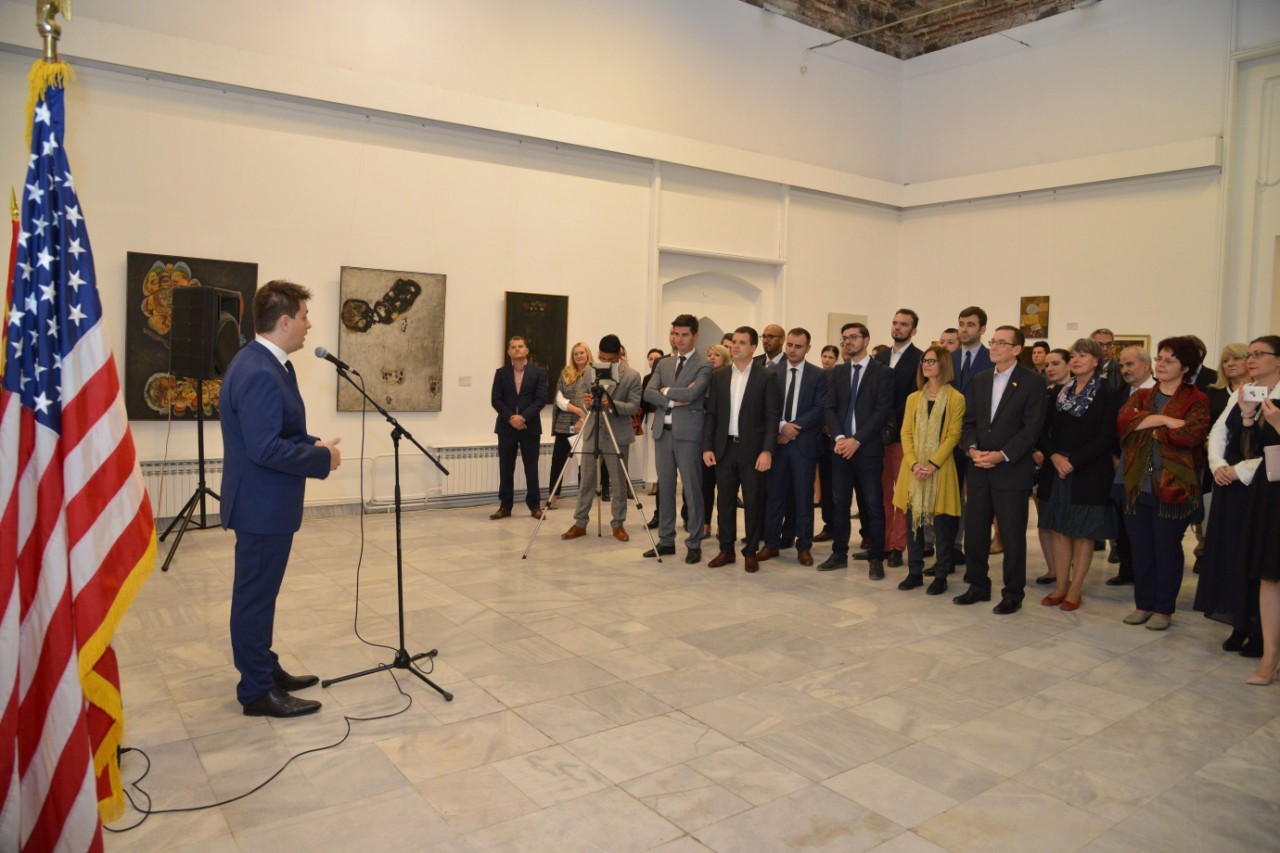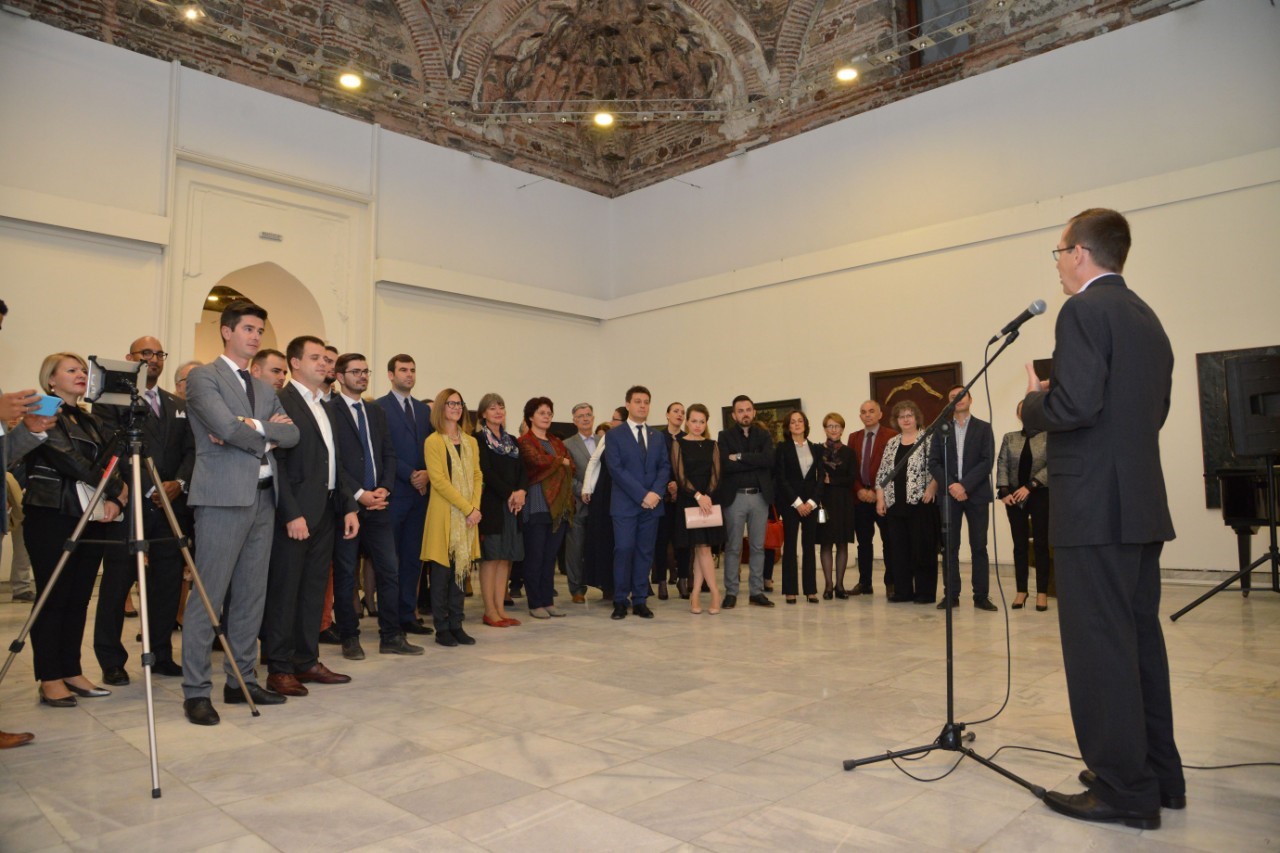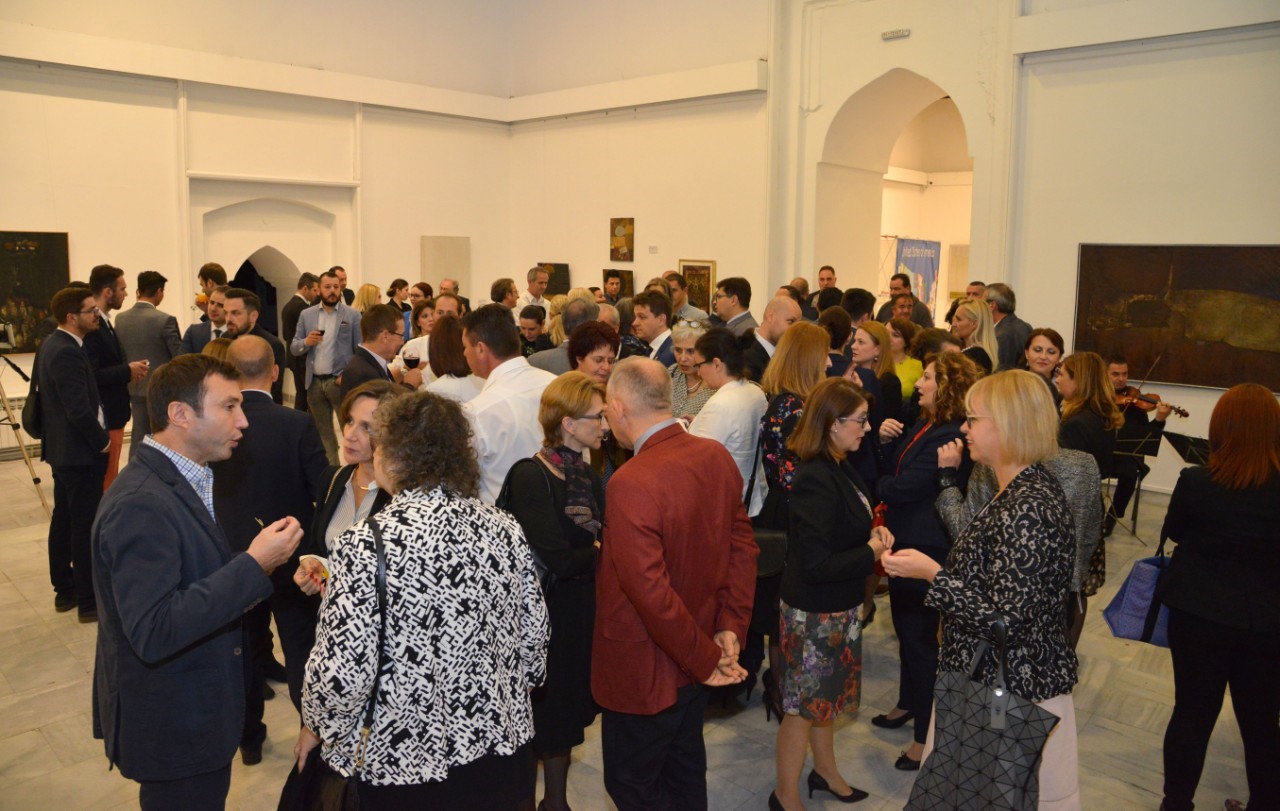|
INTERVIEW WITH ANNA-ELISABETH SCHMITZ
German Fulbright Alumni Association

Ms. Schmitz, you are a member of the extended board of the German
Fulbright Alumni Association. What are the main activities the organization has been
dedicated on lately?
Ms. Schmitz: The main purpose of the German Fulbright Alumni Association is to connect former
German Fulbrighters to the United States for life so to speak. In order to do that, we
organize different kinds of events across Germany – from monthly pub-crawls to an annual
Winterball – where our members can meet regularly and network. Our flagship event is the
annual Welcome Meeting in autumn to which we invite all recent German Fulbright returnees. As
older alumni, we know how hard the return culture shock can hit you, so this event was
initiated to help returnees deal with that experience. We also invite incoming American
grantees to the event to give them a warm welcome in Germany. The Welcome Meeting was also
where I first got into contact with the Fulbright alumni community here in Germany and where I
decided to become more involved. I have been the organization’s International Relations
Coordinator for two and a half years now. I have worked to strengthen our relations with other
Fulbright alumni communities around the world and developed plans for cooperation. I hope that
they will come to fruition next year. Stay tuned.

Which US exchange program have you completed? How has that experience
helped you develop professionally?
Ms. Schmitz: I did a Fulbright in Boston, MA, in 2014. I studied Global Studies
and International Relations with a concentration in Conflict Resolution at Northeastern
University there. My Fulbright experience helped me develop professionally because during my
time at Northeastern I was finally able to decide in which field I want to have a career
later. In my classes, I realized that my primary areas of interest include the psycho-cultural
determinants and factors of conflict and conflict management strategies.
Ms. Schmitz, you were recently elected member of the executive board the
European Network of American Alumni Associations ENAM. Could you please give us some more
information about your experience with the organization so far and your current
obligations?
Ms. Schmitz: ENAM – the European Association of American Alumni Associations – is
the regional umbrella organization for all European US exchange alumni organizations like the
German Fulbright Association or your own, the Macedonian American Alumni Organization. ENAM
connects the national alumni organizations with one another and provides capacity-building
resources to them. As board members, my colleagues and I are responsible for promoting ENAM’s
mission and strengthening the relations with national alumni organizations. For example, we
are currently building a new website for ENAM.

You are a PhD student at Leuphana Universität Lüneburg in Germany. How do
your studies in Democracy help you communicate across differences in general? In what ways,
do you think, will these studies help you become more successful in what you do?
Ms. Schmitz: I am in a special doctoral program called “Democracy under Stress”.
My colleagues and I investigate the new challenges to democracy – we call them stress factors
– and how they are dealt with. I study political culture, the underlying orientations,
beliefs, and values that determine different types of political systems. My research project
focuses on economic inequality and its effect on liberal democratic culture around the world.
I investigate if being a member of a certain social class says something about how much you
champion liberal democratic values and how satisfied you are with that kind of political
system in general. Understanding the underlying factors that lead to societal conflict, the
kinds of conflicts we are experiencing in many democracies around the world at the moment, is
an indispensable condition if you want to try to solve them. Without fully understanding where
people are coming from, you cannot communicate across differences.
Interviewed by Angela Dimitrovska
|